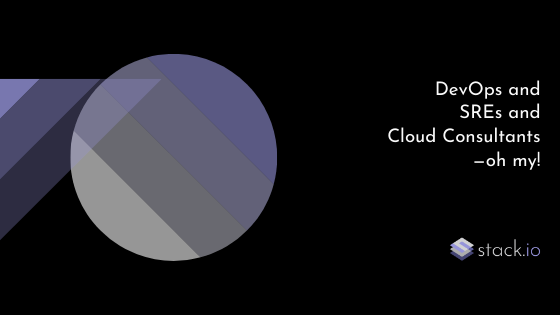1. AWS outage teaches valuable lesson about redundancy
In 2019, we saw major outages from some of the world’s leading cloud providers:
Microsoft Azure. On May 2nd, a “nameserver delegation” issue caused outages across various Microsoft products such as Office 365, One Drive, Xbox Live, and more.
Google Cloud Platform. On June 2nd, a seemingly harmless maintenance event affected multiple regions across the world, including us-central1, us-east1, us-east4, us-west2, northamerica-northeast1, and southamerica-east1. Most notably affected by this outage were Snapchat, Vimeo, Shopify, Discord, and Pokemon GO.
Amazon Web Services. On August 31st, one of Amazon’s AWS US-EAST-1 data centres in North Virginia experienced an unexpected power outage. This outage was notorious for causing a Reddit outage.
Using a case study of one of our own clients affected by the AWS outage, we discuss the importance of redundancy in your infrastructure.
2. How to adopt Kubernetes without an entire DevOps team
With the rise of fractional ops, we believe that scalable and robust infrastructure is easier to adopt than ever. Inspired by a guide written by Shuveb Hussain, the author of the blog Unixism, we go over a few simple ways for your team to adopt Kubernetes without hiring an entire DevOps team.
Fractional operations engineers work for multiple companies at once, allowing you to access the knowledge and expertise of an entire team, only when you need it. A fractional ops model gives you the added benefit of:
Outsourcing projects that you don’t have the time, resources, or expertise to complete.
Receiving recommendations based on what’s been working well for other companies.
Saving you time wasted on solving problems that have already been solved.
If you want to know more about our fractional ops model, take a look here.
3. The complete guide to containers vs VMs for DevOps
We are huge fans of containers, and in 2019, we weren’t afraid to make that known!
We truly believe that for the majority of small and medium-sized businesses (SMB), the time, money, and effort you put into containerizing your app (or paying someone to do it for you!) will result in infrastructure that is easier to set up, maintain, and upgrade.
4. Kubernetes: just use it
Some of our public cloud infrastructure consultants picked up Kubernetes back when it was released 5 years ago, while others have hopped aboard more recently, but everyone agrees on one thing: Kubernetes isn’t that bad and you really don’t need to be afraid of it.
We break down some of the top reasons why the best way to get over the fear of Kubernetes is to just to use it.
Want to try Kubernetes before diving into the deep end? Send us a message and ask about trying our sandbox.
5. DevOps and SREs and Cloud Consultants, oh my!
At stack.io, we don’t care what you you call us: call us DevOps, SREs, or public cloud infrastructure consultants! Our priorities lie in maintaining industry best practices and infrastructure responsibilities in order to make sure that we understand and address your problems.
In this post, we outline what it means to be a DevOps engineer and SRE, as well as how our public cloud infrastructure consultants take the best of both worlds to tackle your backlog and complete your infrastructure projects.
What would you like to hear about next year? Let us know!






